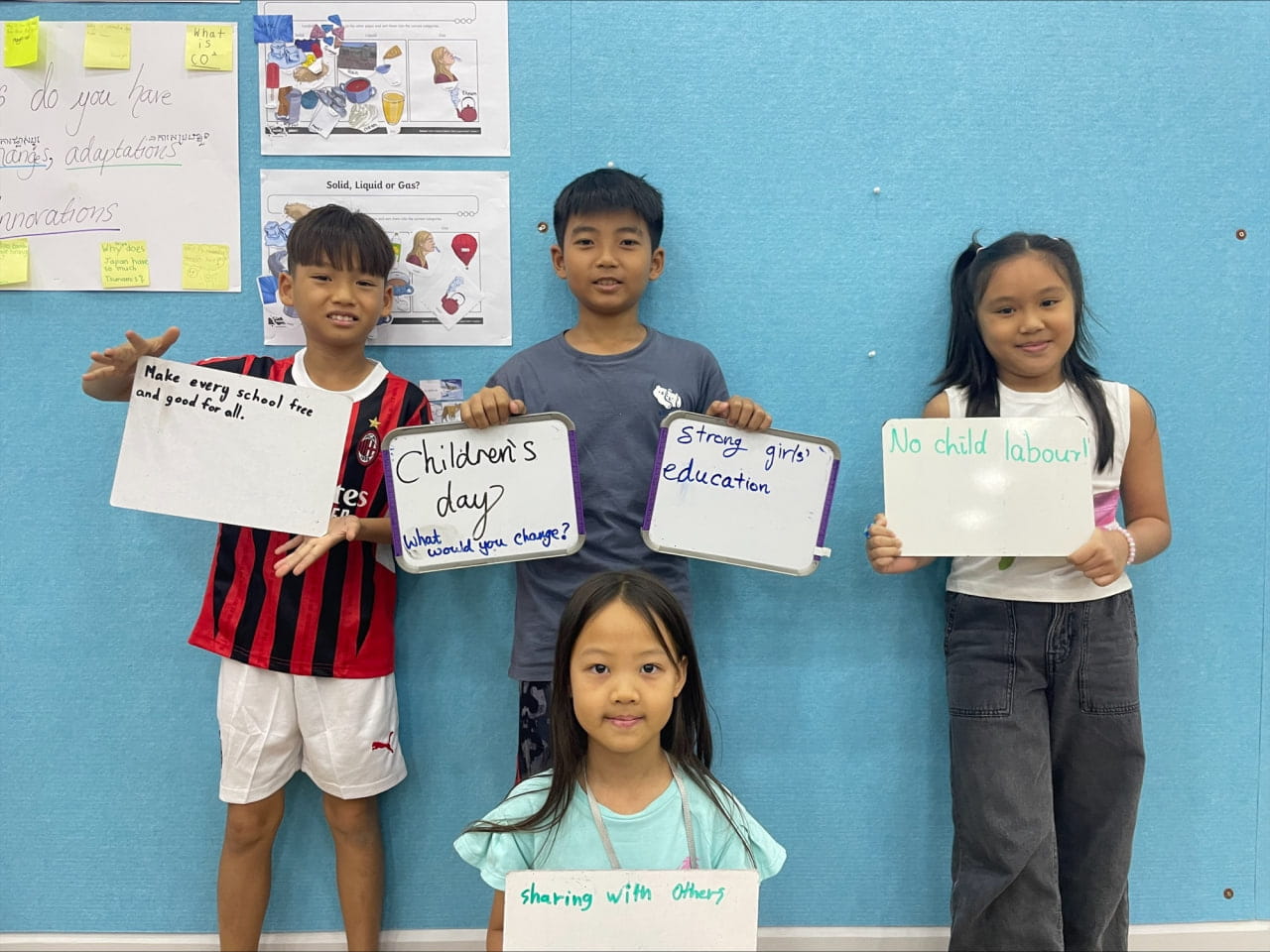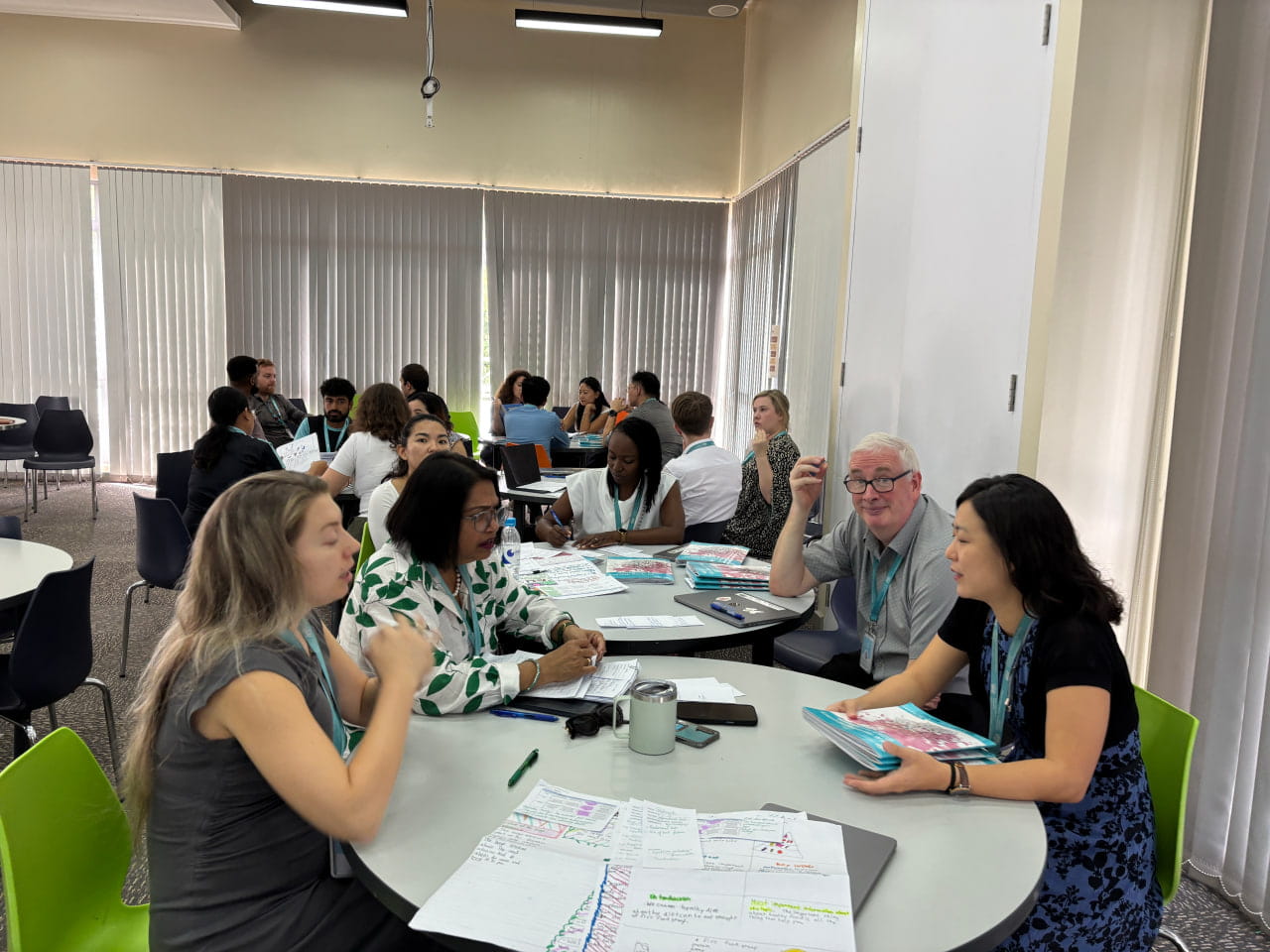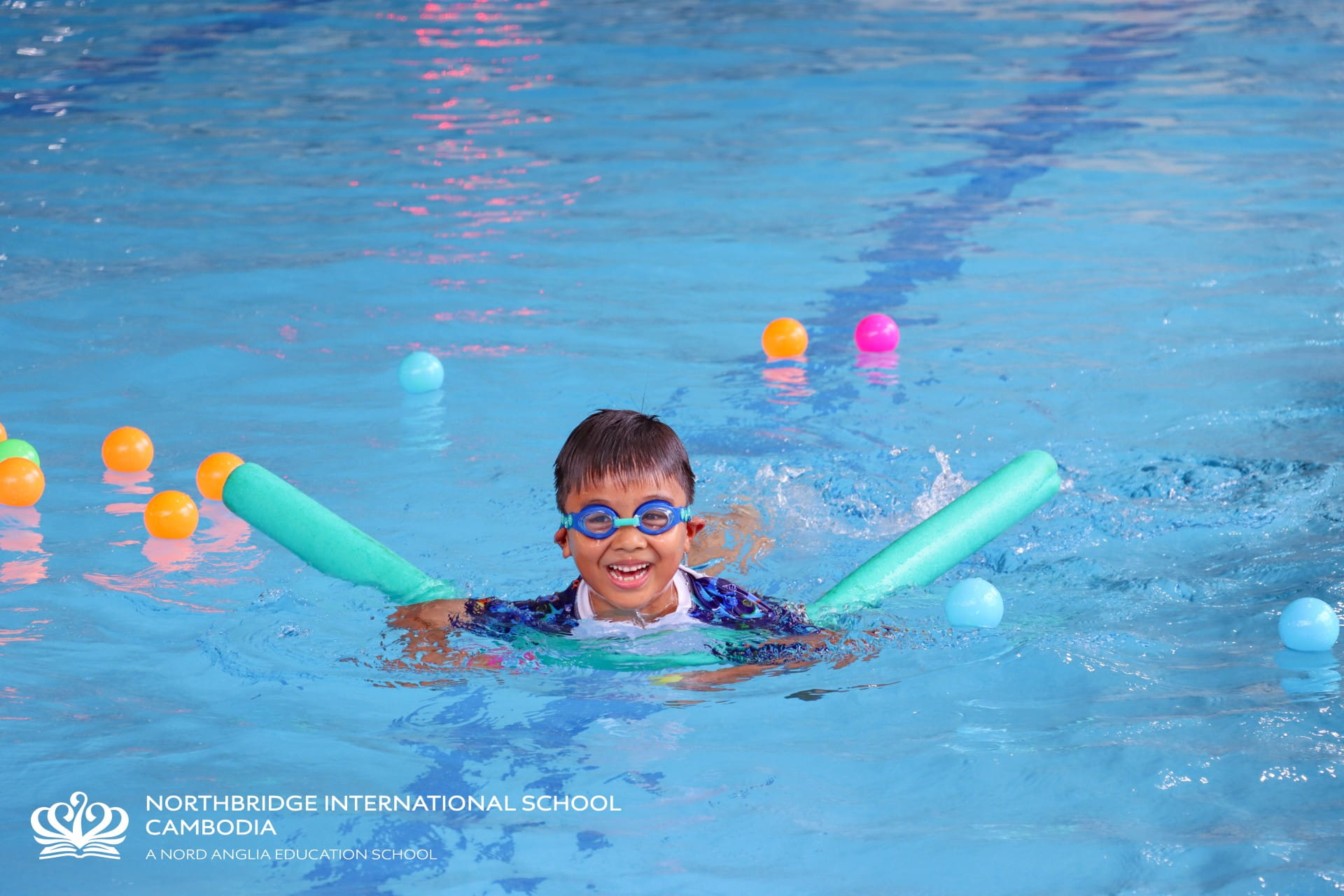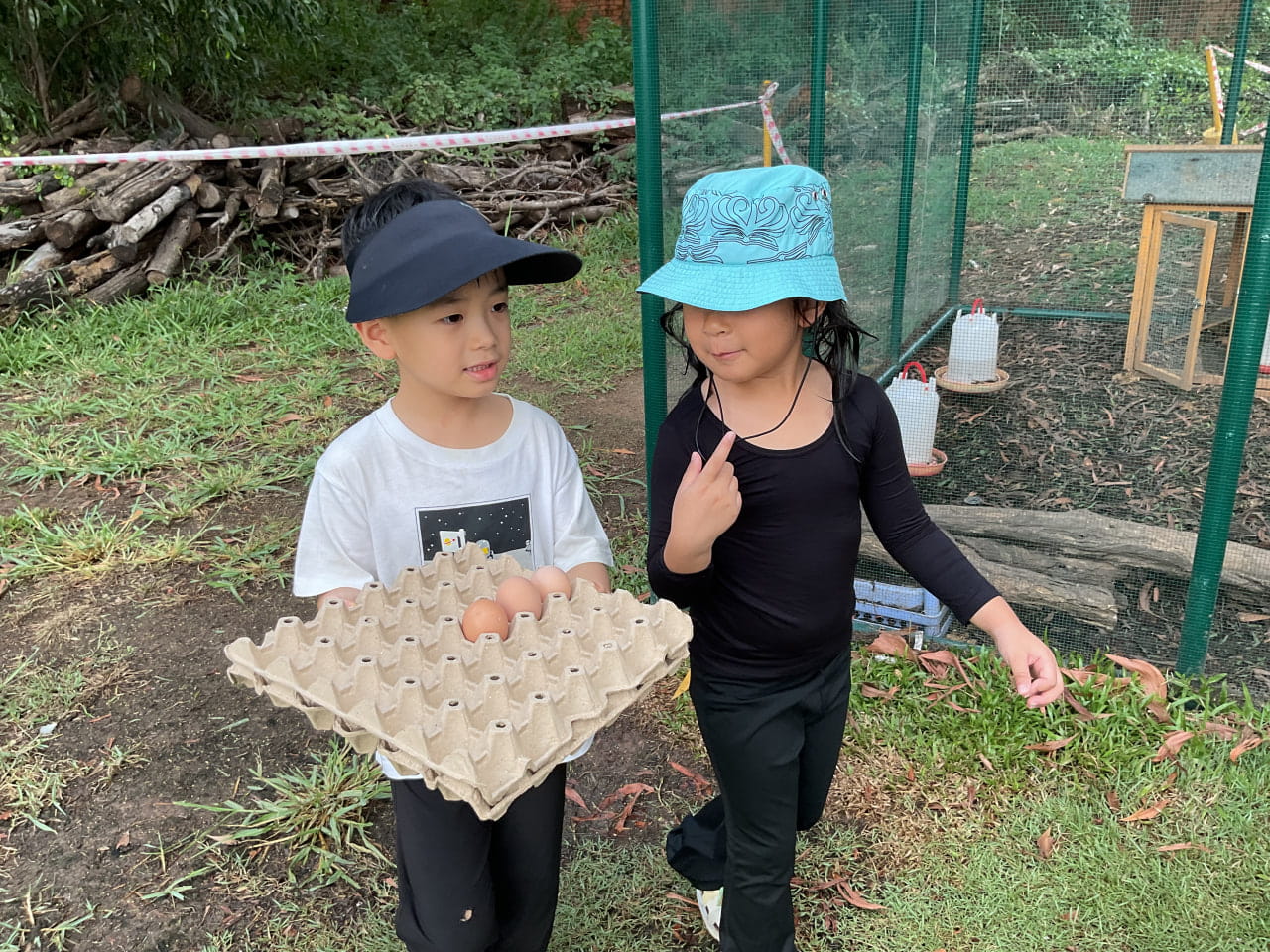By Emma Larkin-Tannett
Grade 3 Teacher
Grade 2 & 3 Leader
Global Campus Co-ordinator
World Children's Day, celebrated on November 20th, is a global occasion dedicated to promoting the rights and well-being of children everywhere. This day serves as a reminder of the importance of ensuring every child has the opportunity to learn, grow, and thrive. It calls for action to protect children’s rights and to advocate for a world where every child can reach their full potential.
Here at NISC, we recognise the importance of World Children's Day, especially in our mission to educate children in Cambodia. Our motto, "Caring Hearts and Ambitious Minds," resonates deeply with the values celebrated on this special day. We believe that every child has the right to learn, achieve, and excel, and we are committed to fostering an environment that nurtures these ideas.
On the morning of World Children’s Day, we promoted discussion within the primary classrooms, posing the questions, ‘Why is World Children’s Day important?’ and ‘What would you change in our current world?’ We elicited varied discussion across the grades. Students spoke about the importance of caring for our environment and ensuring that good quality education is accessible to all.
In our younger years, we planned activities around the Convention on the Rights of the Child. This exposed even our youngest minds to the importance of the day. World Children's Day encourages us to reflect on the challenges many children face, particularly in our local context. We hope that the issues raised on this day go beyond the classroom. What can we all do as individuals to ensure that children everywhere can achieve and flourish. Let us all have caring hearts and ambitious minds and work towards a world where all children can thrive.






